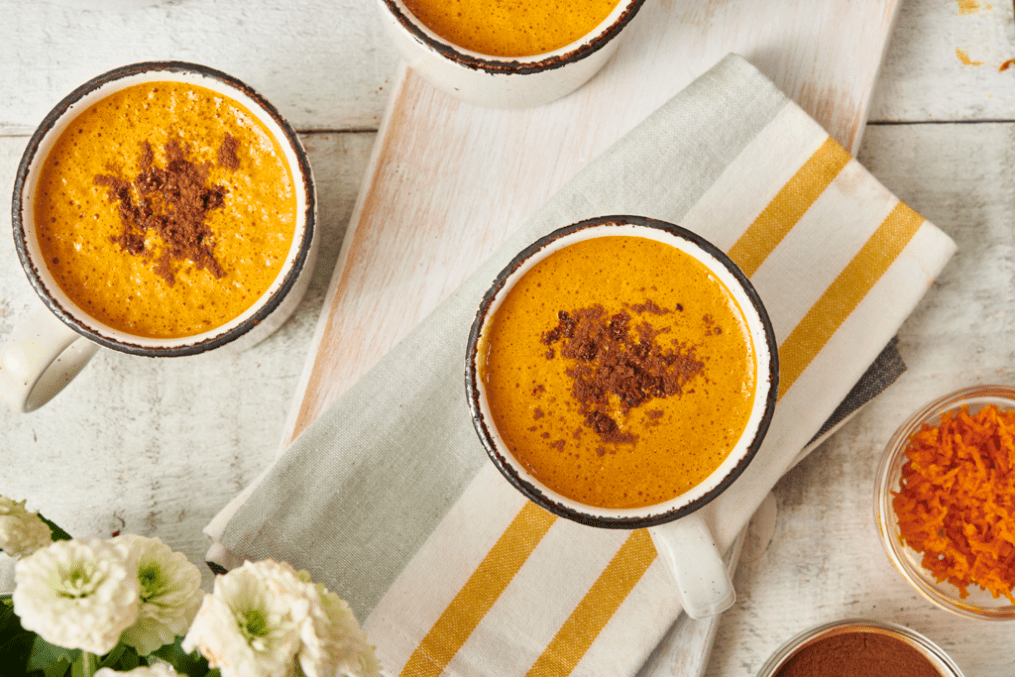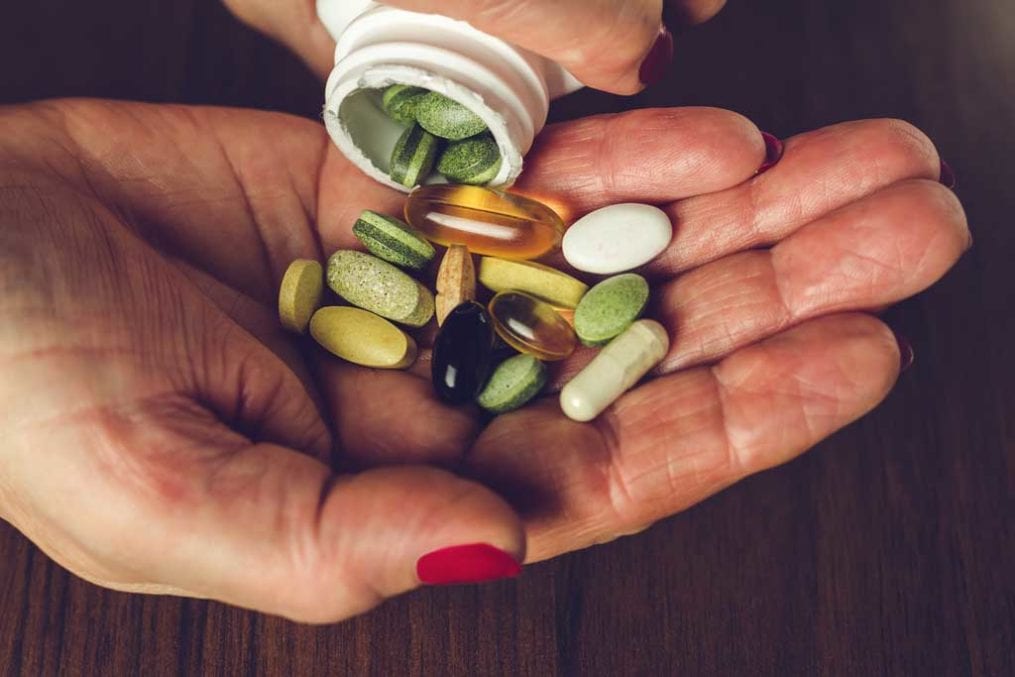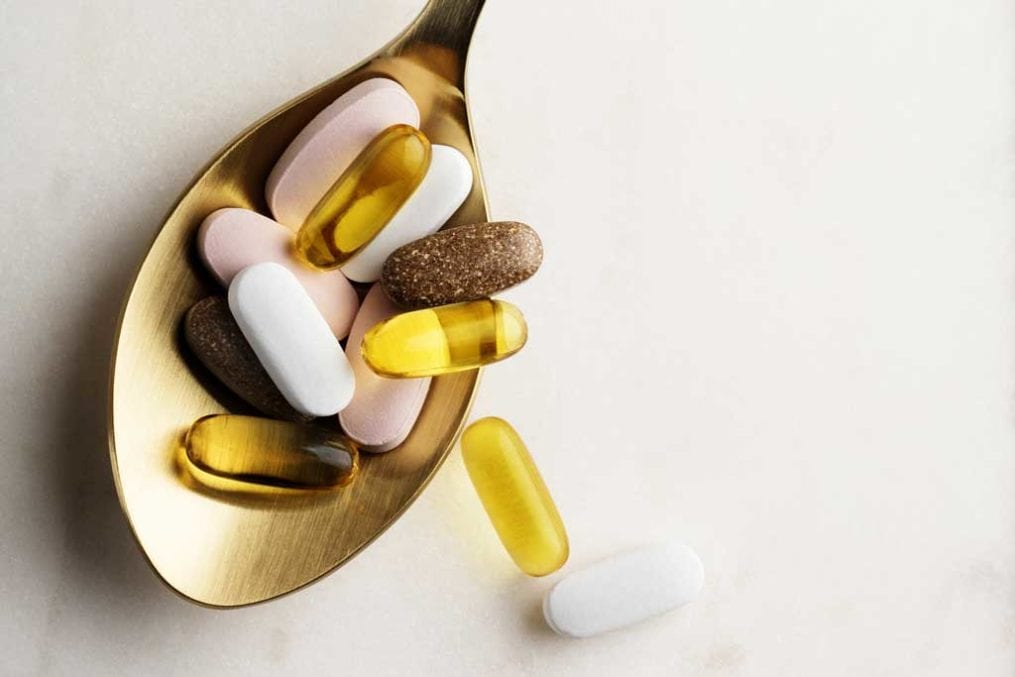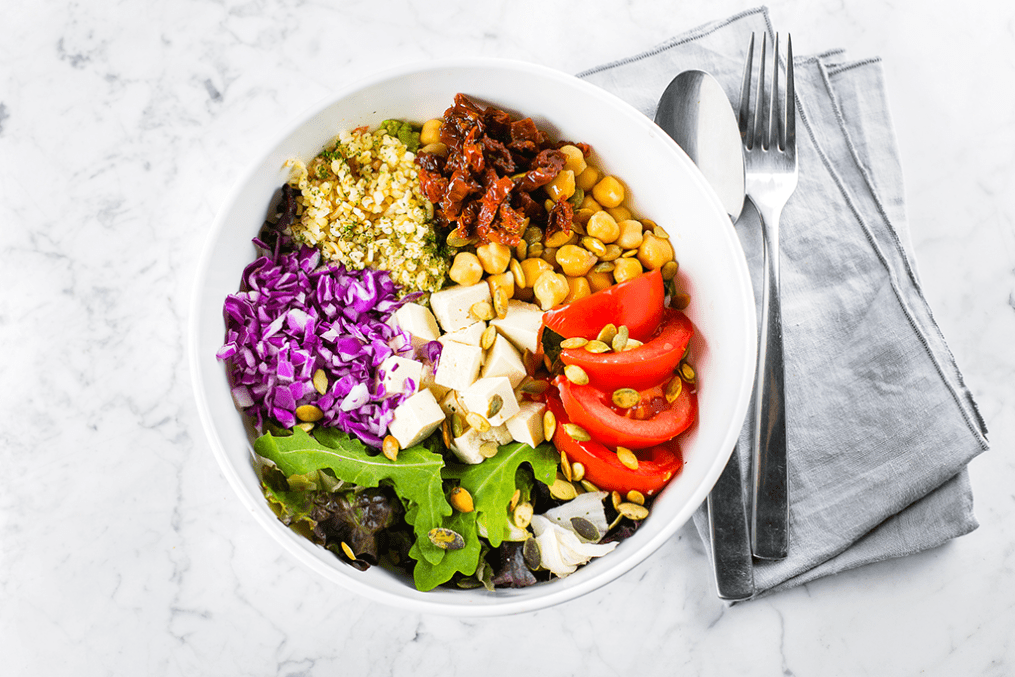What does turmeric do?

Over the past few years, the health and wellness world has developed an obsession with a particular yellow spice. Turmeric has been a buzzword on health blogs and hipster café menus, with advocates sipping on golden lattes and adding the ancient ingredient to cooking for its believed health benefits, as well as its spicy flavour.
Believed health benefits of turmeric include reducing inflammation and supporting digestion. But what does turmeric actually do, and how much should we be consuming?
What is turmeric?
As you probably already know, turmeric is a bright yellow spice that has been used for thousands of years as a cooking ingredient, but it’s been used since ancient times as a medicinal herb, too. Turmeric is extracted from the root of the turmeric plant and is related to ginger, as both are part of the Zingiberaceae family.
Turmeric’s distinctive colour comes from curcumin, which is believed to be the ingredient within the spice with health-boosting properties. Curcumin has been proven to have anti-inflammatory properties and is believed to aid digestion, too.
As well as the familiar yellow powder, turmeric is available in the form of capsules, teas, essential oils, scrubs and is sometimes even used in face masks. Scientists have discovered that black pepper helps your body absorb curcumin, so you may sometimes find the two blended together in food products.
Try turmeric in these products from Holland & Barrett
What are the health benefits of turmeric?
Turmeric has been heralded for its health properties in traditional ayurvedic medicine, which originated in India, for thousands of years. Today, clinical studies into the effects of curcumin are beginning to back this up.
Reducing inflammation
In 2013, a study found that curcumin may help to reduce inflammation and swelling. Scientists believe it has this effect because it blocks proteins that create inflammation in the body.
Protecting your joints
Curcumin’s anti-inflammatory effect could also have a knock-on effect in preventing your joints from wear and tear. A 2016 study in Journal of Medicinal Food showed that curcumin could ease symptoms of arthritis, including difficulty with joint movement and stiffness.
Easing digestion
It’s believed that curcumin benefits gut health, too, and can relieve excess gas, abdominal pain, and bloating. In a 2013 trial by the University of Nottingham curcumin was found to stimulate the gallbladder, resulting in the production of bile – an essential substance needed to break down fat in foods.
However, it’s important to remember that the dosage of curcumin in turmeric is low, while many of these studies have investigated the effects of curcumin in a concentrated dose. For this reason, the health benefits observed here may not be directly translatable to consuming small amounts of turmeric in the diet.
How much turmeric should I take?
Although there is currently no reference nutrient intake (RNI) for turmeric, make sure that you don’t exceed the dosage stated on any label. There is an RNI for curcumin: the World Health Organisation advises up to 3mg per kg of bodyweight of curcuminoids, which includes curcumin. However, the average daily intake in an Indian diet is much higher, reaching 60-100mg per kg of bodyweight.
In 2017, a study by USA’s Central Michigan University reported that an important compound in black pepper, piperine, can increase the body’s ability to absorb curcumin by 2000 per cent. So if you want to increase the benefits of turmeric, take it with black pepper.
The safety of turmeric has not yet been tested on children under 12 years old, or women who are pregnant, or breast-feeding. And importantly, if you experience adverse side effects, including an upset stomach, diarrhoea, yellow stools, headaches, or skin rashes, after taking turmeric, you should stop taking it and seek medical attention.











